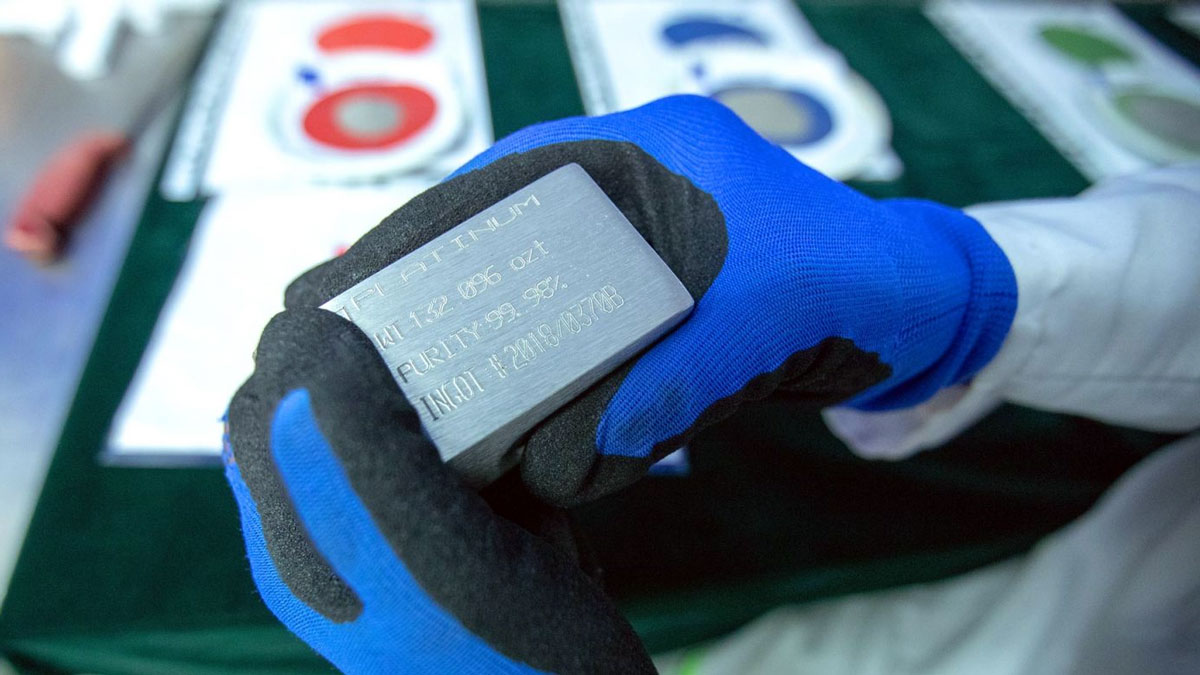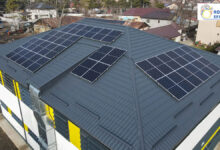Johnson Matthey and Sibanye-Stillwater to Secure PGMs and Develop Solutions to Drive Decarbonisation
Johnson Matthey, a global leader in sustainable technologies and Sibanye-Stillwater, a leading international precious metals mining group, have formed a strategic partnership to identify and develop solutions to drive decarbonisation and the more efficient use of critical metals such as PGMs (platinum group metals) and metals used in battery technology.
The challenge of tackling climate change has resulted in nations around the world setting net zero targets to drive decarbonisation through supply chains. At the same time, customers and consumers are increasingly demanding responsibly sourced raw materials and products.
Johnson Matthey is at the forefront of science that enables a more sustainable future – including technologies for clean hydrogen production, fuel cell products, next generation battery materials and solutions for the decarbonisation of the manufacture of chemicals. As the world’s largest fabricator and recycler (secondary refiner) of PGMs, a closed loop circular approach to maximise metal reuse has been part of Johnson Matthey’s DNA for many decades.
Sibanye-Stillwater is a leading global PGM producer and a top tier gold producer. The Group has also recently embarked on an entry into the battery metals supply chain through an equity investment into and partnership with, Keliber Oy, a Lithium Hydroxide project in Finland. Sibanye–Stillwater is also a leading global recycler of spent catalytic converter materials containing platinum, palladium and rhodium. Sibanye-Stillwater recently achieved an ‘A-‘ rating by non-profit global environmental disclosure platform CDP, in recognition of its climate change action and disclosure.
PGMs, due to their unique properties, play a vital role in low carbon technologies that will enable the path to net zero targets globally. PGMs are at the heart of electrolyser technologies for producing green hydrogen (i.e., hydrogen produced from renewable energy and with no greenhouse gas emissions). PGMs are also a crucial component of fuel cells, facilitating the conversion of hydrogen into electrical energy with no harmful emissions.
The strategic partnership between the two companies will focus on developing several opportunities to drive technological innovation and ensure more sustainable supply chains for customers:
- Johnson Matthey and Sibanye-Stillwater will collaborate on the sourcing and application of PGMs, and metals used in battery technology to enable the development and commercialisation of low carbon technologies, with a focus on circularity and sustainability. In addition, the companies will examine potential opportunities to apply their collective experience to support the development of more sustainable supply chains for battery materials.
- The companies will combine their extensive expertise in metals recycling to improve current technologies, particularly for ‘difficult to recover’ materials.
- The strategic partnership builds on the existing relationship between the two companies, which has ensured security of supply of crucial pgms into many industries. Johnson Matthey and Sibanye-Stillwater have also extended their current PGM supply and refining agreements to ensure long term sustainable supply for Johnson Matthey’s products and customers.
“We are delighted to announce this important partnership with Sibanye-Stillwater to accelerate development of the low carbon technologies and sustainable supply chains needed for a cleaner, heathier world. We are excited to bring together our complementary expertise to help secure a more sustainable future for tomorrow’s industry,” Robert MacLeod, Chief Executive of Johnson Matthey, said.
“We are delighted to enter into this world-class partnership which further advances our commitment to creating a greener future, by developing technologies for a better tomorrow, utilising the metals we produce. Fast-tracking green technology and working together to achieve ESG excellence will enable us to continue to improve lives and the environment,” Neal Froneman, CEO of Sibanye-Stillwater, added.
What are PGMs?
Platinum group metals (PGMs) are a precious natural resource important for many applications like emission control, industrial process chemistry, corrosion protection, medical implants and to make beautiful jewellery. So, developing methods to recover and purify these precious metals from a diverse range of sources means we can continue to use them.
There are six transition metals, which share similar properties, that are known as the platinum group metals or pgms: Platinum (Pt); Palladium (Pd); Ruthenium (Ru); Rhodium (Rh); Iridium (Ir) and Osmium (Os).
About Johnson Matthey
Johnson Matthey is a global leader in science that enables a cleaner and healthier world. With over 200 years of sustained commitment to innovation and technological breakthroughs, they improve the performance, function and safety of their customers’ products and in 2020 they received the London Stock Exchange’s Green Economy Mark, given to companies that derive more than 50% of revenues from environmental solutions. Johnson Matthey’s science has a global impact in areas such as low emission transport, pharmaceuticals, chemical processing and making the most efficient use of the planet’s natural resources.
About Sibanye Stillwater
Sibanye Stillwater is a leading international precious metals mining company, with a diverse portfolio of platinum group metal (PGM) operations in the United States and Southern Africa, gold operations and projects in South Africa, and copper, gold and PGM exploration properties in North and South America.
It is the world’s largest primary producer of platinum and rhodium, the second largest primary producer of palladium and a top tier gold producer, ranking third globally, on a gold-equivalent basis, as well as a significant producer of other PGMs and associated minerals such as chrome. It is also the leading global recycler and processor of spent PGM catalytic converter materials. Most recently, the Group has entered the battery metals industry by investing in a lithium hydroxide project in Finland.







